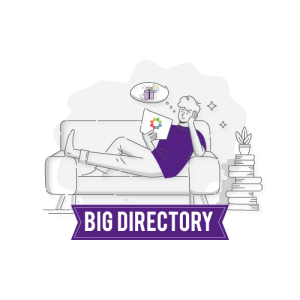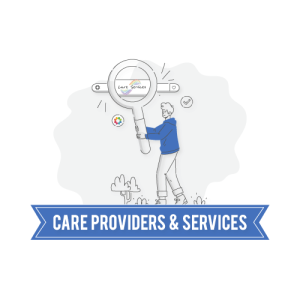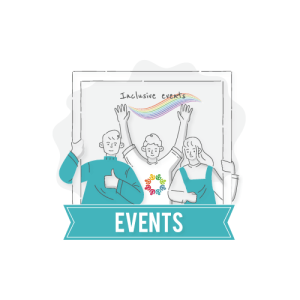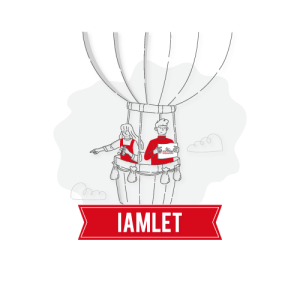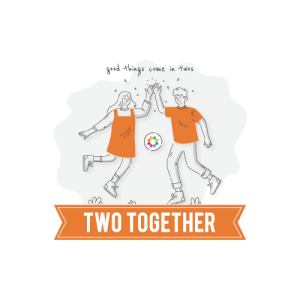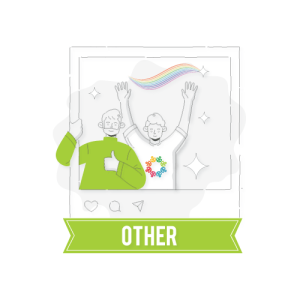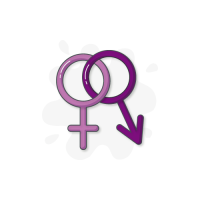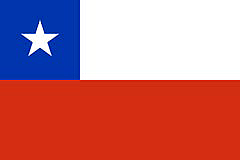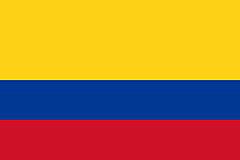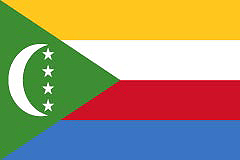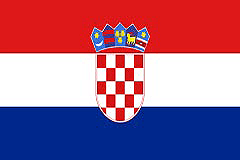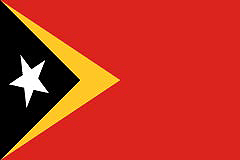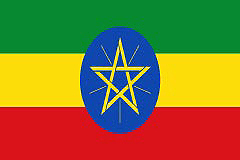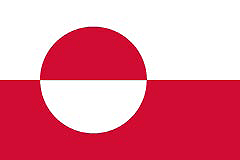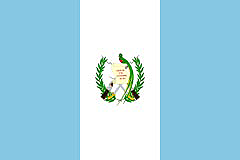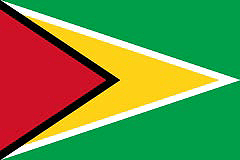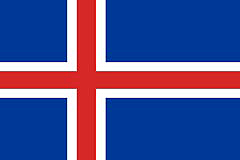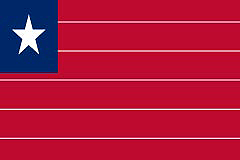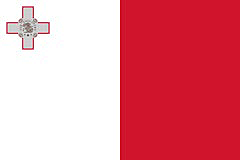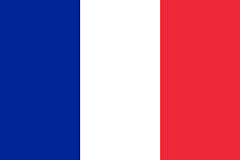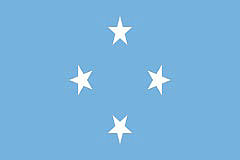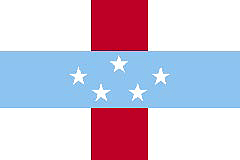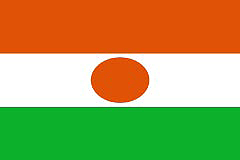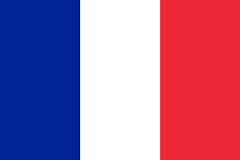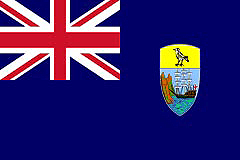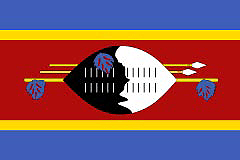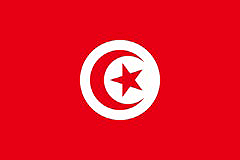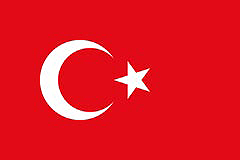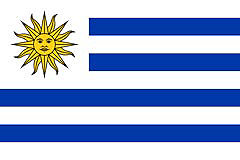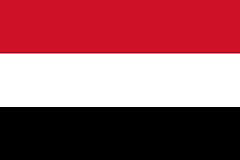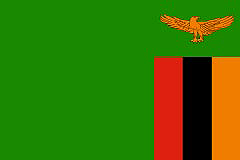
2024 Worldwide LGBTQIA+ Equality Index

38.7 million or 18.1% of the worldwide LGBTQIA+ community live in countries that are classified as high or very high within the equality index
The gay, lesbian, bisexual, transgender, and all groups with non-traditional gender and sexual identities, collectively known as the LGBTQIA+ community, have been around in many forms for thousands of years. The community faced hundreds of years of persecution, targeted campaigns and gruesome convictions when prosecuted. It was not until the late 18th century that the gay movement began to gain momentum, with prominent people advocating for equality and a movement that continues today.
The LGBTQIA+ equality index focuses on the community’s global status, rights, and legal treatment. The index is compiled by reviewing the many rules and laws that directly affect and impact the community, areas such as the same-sex legal status, the right to marry, anti-discrimination laws and other key metrics











































































































































































































































- 27.9% or an estimated 59.8 million LGBTQIA+ individuals live in countries in which it is illegal to carry out same-sex related acts
- 90 countries have extensive anti-discrimination laws in place
- 61 countries allow LGBTQIA+ couples to adopt, and 23 countries offer limited adoption rights such as step-child adoption or LGBTQIA+ individual adoption
- 98 countries have laws concerning gender identity/expression
- 22 countries have nationwide bans in place concerning Gay Conversion Therapy
- In 2024, in terms of the worldwide equality index:
- 18.1% of all countries are classified as high or very high
- 59% of all countries are classified as medium-high or medium-low
- 22.9% of all countries are classified as low or very low
- 27.9% or an estimated 59.8 million LGBTQIA+ individuals live in countries in which it is illegal to carry out same-sex related acts
- 42.1% or 98 countries have laws concerning gender identity/expression
- For members of the LGBTQIA+ community living in countries in which same-sex related activities are illegal if prosecuted:
- 18 countries still criminalise same-sex activities; however, they do not enforce prosecutions
- 7 countries issue penalties of up to 2 years imprisonment
- 27 countries issue penalties of 2 years to life imprisonment
- 5 countries have vigilante groups administering torture, beatings and executions
- 10 countries issue death penalties
- In terms of anti-discrimination laws:
- 90 countries have extensive laws in place
- 40 countries have some laws in place
- 103 countries have no laws in place
- In terms of other key factors affecting the LGBTQIA+ community:
- 61 countries allow LGBTQIA+ couples to adopt, and 23 countries offer limited adoption rights such as step-child adoption or LGBTQIA+ individual adoption
- 119 countries allow LGBTQIA+ individuals to serve in the military
- 22 countries have nationwide bans in place concerning Gay Conversion Therapy
- 3 countries have legalised Gay Conversion Therapy, making it state-approved
- The Cook Islands, Dominica and Mauritius decriminalised homosexuality, which was all signed into law. Iraq’s parliament voted to criminalise same-sex relationships, and Ghana introduced laws in which anyone seen as promoting or advocating LGBTQIA+ rights could be prosecuted and face up to five years in prison. Russia’s supreme court, based on a motion from the Ministry of Justice, changed the status of the country’s LGBTQIA+ community by reclassifying the community and individuals as being members of an extremist organisation, including banning any activities across the country. Since the introduction, gay bars and clubs have been raided, and community members have been arrested.
- Latvia passed a law recognising the forming of civil unions for same-sex couples, and same-sex marriages became legal in Estonia, the Czech Republic, Nepal, Greece, Thailand, and Liechtenstein. From December 2023, the Church of England and the Catholic Church began blessing the union of same-sex couples.
- Belgium, the Republic of Cyprus, Iceland, Portugal, Norway and Spain all passed laws banning gay conversion therapy. Uganda, as part of Section 16 of the Anti-Homosexuality Act of 2023, the courts have been given powers to force LGBTQIA+ individuals to undergo gay conversion therapy, making it the third country, including Malaysia and Iran, to state-enforce the treatment.
- Taiwan passed a bill giving same-sex couples full adoption rights. Liechtenstein and Estonia now permit same-sex couples to carry out joint adoptions, and the Czech Republic permits same-sex couples to carry out stepchild adoptions. LGBTQIA+ individuals who have formed Free unions in Bolivia are now allowed to adopt.
- Bulgaria and Brazil amended their criminal codes to impose stricter penalties for crimes committed against a person based on their sexual orientation or gender identity.
- Andorra, Finland, and Hong Kong have changed their laws to allow transgender individuals to legally change their gender without the need for surgery or sterilisation. Germany, New Zealand, and Spain have introduced bills that enable individuals to change their gender based on self-determination. Sweden has lowered the legal age for individuals to change gender from 18 to 16. In contrast, Russia reversed progressive laws and has now made it illegal for transgender individuals to change their gender. /ul>
 Click on a specific country within the map to find out the equality score
Click on a specific country within the map to find out the equality score
The LGBTQIA+ equality index focuses on the community’s global status, rights, and legal treatment. The index is compiled by reviewing the many rules and laws that directly affect and impact the community, including same-sex legal status, the right to marry, anti-discrimination laws and other key metrics. To understand all of the areas and how they contribute to the overall score, click here to view the how it was calculated page
Through the work of advocates and pioneers, many members of the LGTBQIA+ community now have the rights and freedoms to live their authentic lives or selves without fear of persecution; however, there are still inequalities and injustices occurring all over the world. Many brave individuals and groups work within those countries to change the laws and opinions, so hopefully, everyone will have the freedom and protection under the law one day.
Simply put, the higher a country scores, the lower the equality status of that country on the index. The lower the status, the worse they treat members of the LGBTQIA+ community. IMPORTANT: If you feel your life is in danger or fear persecution, visit the non-profit organisations and support groups’ pages. There are many specialist charities and groups available worldwide that can help. A link to support groups can be found in the footer of every page on the Gayther service
TAKING PRIDE IN YOU



Equality means equal rights and treatment, which means not treating someone differently because of their gender or sexuality. Equality represents a belief that everyone within any given country should have the same rights and privileges enjoyed and given to the majority of people living in that country. In the example of sexuality, the majority would be individuals who identify as heterosexual. Equality would mean for the LGBTQIA+ community that people should be able to live without fear of persecution, love whomever they love, without condemnation and have the same access to education, healthcare, marry or form civil partnerships, and create loving family units
DISCOVER WHICH COUNTRIES LEGALLY RECOGNISE GENDER IDENTITIES...
Gender and body dysmorphia affects many people each year. Many will feel trapped in the wrong body and look to transform their outer appearance to reflect their inner self. For those going through their transition, it is often a challenge and lengthy process. Discover how each country around the world legally acknowledges and treats gender identities
Please select a country from the drop-down list to discover common phrases relating to equality
AFGHANISTAN
ALBANIA
ALGERIA
AMERICAN SAMOA
ANDORRA
ANGOLA
ANGUILLA
ANTIGUA AND BARBUDA
ARGENTINA
ARMENIA
AUSTRALIA
AUSTRIA
AZERBAIJAN
THE BAHAMAS
BAHRAIN
BANGLADESH
BARBADOS
BELARUS
BELGIUM
BELIZE
BENIN
BERMUDA
BHUTAN
BOLIVIA
BOSNIA AND HERZEGOVINA
BOTSWANA
BRAZIL
BRITISH VIRGIN ISLANDS
BRUNEI DARUSSALAM
BULGARIA
BURKINA FASO
BURUNDI
CAMBODIA
CAMEROON
CANADA
CAPE VERDE (CABO VERDE)
CARIBBEAN NETHERLANDS
CAYMAN ISLANDS
CENTRAL AFRICAN REPUBLIC
CHAD
CHANNEL ISLANDS
CHILE
PEOPLE’S REPUBLIC OF CHINA
COLOMBIA
COMOROS
DEMOCRATIC REPUBLIC OF THE CONGO
REPUBLIC OF THE CONGO
COOK ISLANDS
COSTA RICA
CROATIA
CUBA
REPUBLIC OF CYPRUS
CZECH REPUBLIC (CZECHIA)
DENMARK
DJIBOUTI
DOMINICA
DOMINICAN REPUBLIC
EAST TIMOR (TIMOR-LESTE)
ECUADOR
EGYPT
EL SALVADOR
EQUATORIAL GUINEA
ERITREA
ESTONIA
ETHIOPIA
FALKLAND ISLANDS (LAS MALVINAS)
FIJI
FINLAND
FRANCE
FRENCH GUIANA
FRENCH POLYNESIA
GABON
THE GAMBIA
GEORGIA
GERMANY
GHANA
GIBRALTAR
GREECE
GREENLAND
GRENADA
GUADELOUPE
GUAM
GUATEMALA
GUINEA
GUINEA-BISSAU
GUYANA
HAITI
HONDURAS
HONG KONG
HUNGARY
ICELAND
INDIA
INDONESIA
ISLAMIC REPUBLIC OF IRAN
IRAQ
IRELAND
ISLE OF MAN
ISRAEL
ITALY
IVORY COAST (COTE D’IVOIRE)
JAMAICA
JAPAN
JORDAN
KAZAKHSTAN
KENYA
KIRIBATI
DEMOCRATIC PEOPLE’S REPUBLIC OF KOREA (NORTH)
REPUBLIC OF KOREA (SOUTH)
REPUBLIC OF KOSOVO
KUWAIT
KYRGYZSTAN
LAOS
LATVIA
LEBANON
LESOTHO
LIBERIA
LIBYA
LIECHTENSTEIN
LITHUANIA
LUXEMBOURG
MACAU
MADAGASCAR
MALAWI
MALAYSIA
MALDIVES
MALI
MALTA
MARSHALL ISLANDS
MARTINIQUE
MAURITANIA
MAURITIUS
MAYOTTE
MEXICO
FEDERATED STATES OF MICRONESIA
MOLDOVA
MONACO
MONGOLIA
MONTENEGRO
MOROCCO
MOZAMBIQUE
MYANMAR
NAMIBIA
NAURU
NEPAL
NETHERLANDS
NETHERLANDS ANTILLES
NEW CALEDONIA
NEW ZEALAND
NICARAGUA
NIGER
NIGERIA
NIUE
NORTH MACEDONIA
NORTHERN MARIANA ISLANDS
NORWAY
OMAN
PAKISTAN
PALAU
STATE OF PALESTINE
PANAMA
PAPUA NEW GUINEA
PARAGUAY
PERU
PHILIPPINES
PITCAIRN ISLANDS
POLAND
PORTUGAL
PUERTO RICO
QATAR
REUNION
ROMANIA
RUSSIA
RWANDA
SAINT BARTHELEMY (BARTS)
SAINT HELENA
SAINT KITTS AND NEVIS
SAINT LUCIA
SAINT MARTIN (DUTCH)
SAINT MARTIN (FRENCH)
SAINT PIERRE AND MIQUELON
SAINT VINCENT AND THE GRENADINES
SAMOA
SAN MARINO
SAO TOME AND PRINCIPE
SAUDI ARABIA
SENEGAL
SERBIA
SEYCHELLES
SIERRA LEONE
SINGAPORE
SLOVAKIA
SLOVENIA
SOLOMON ISLANDS
SOMALIA
SOUTH AFRICA
SOUTH SUDAN
SPAIN
SRI LANKA
SUDAN
SURINAME
SWAZILAND (ESWATINI)
SWEDEN
SWITZERLAND
SYRIA
TAIWAN
TAJIKISTAN
TANZANIA
THAILAND
TOGO
TOKELAU
TONGA
TRINIDAD AND TOBAGO
TUNISIA
TURKEY (TURKIYE)
TURKMENISTAN
TURKS AND CAICOS ISLANDS
TUVALU
UGANDA
UKRAINE
UNITED ARAB EMIRATES (UAE)
UNITED KINGDOM (UK)
UNITED STATES OF AMERICA (USA)
URUGUAY
US VIRGIN ISLANDS
UZBEKISTAN
VANUATU
VATICAN CITY (HOLY SEE)
VENEZUELA
VIETNAM
WALLIS AND FUTUNA
YEMEN
ZAMBIA
ZIMBABWE
LGBTQIA+ COUNTRY & REGION GUIDES
Learn more about the LGBTQIA+ equality status for any given country. The status is based on a scale concerning the laws and regulations around how that country treats the local community. To understand a particular status, click here to view the definition section. The countries are in alphabetical order, and if you want to learn more about any given country, click on the flag, or the country name, which will open the required content in a new window
The total number of countries is grouped by how well they score within the Worldwide LGBTQIA+ Equality Index. The index is based on 233 countries across the globe.
The Gayther equality index focuses on the LGBTQIA+ community’s global status, rights and legal treatment. The index is compiled by reviewing and categorising the many rules and laws that directly affect and impact the community. Categories and areas include same-sex legal status, the right to marry, anti-discrimination laws and other key metrics. Click here to view the How it was calculated page to understand all of the areas and how they contribute to the overall score
How can the LGBTQIA+ Equality Status help visitors and travellers?
The LGBTQIA equality index + indicates how well a country treats its citizens and the local community. Though many issues individuals face within a country, such as the right to marry or adopt, will not affect visitors or travellers, it helps to gauge attitudes. Countries, where LGBTQIA+ identities are more widely accepted within society tend to have more progressive laws. Laws, especially in democratically elected governments, are typically driven and implemented based on consensus and high approval rates amongst most citizens. Where countries score lower on the equality scale, the LGBTQIA+ community will likely face hostility, including visitors and travellers to that country, unless they are discrete. Ultimately the index is a great indicator; however, it is not the only one that can affect someone’s travel experience. Research must be carried out when planning to travel to a particular area or region to ensure that there are no problems, such as extreme weather, outbreaks of diseases or violence

When reviewing data, it is crucial to understand what it represents, whether it reflects the world and the experience of all those affected. Changes within any given country or region are not restricted to a specific month of the year or even are automatically triggered. Change, especially concerning equality, gender recognition, same-sex marriages and the status of gay conversion therapy, often takes work. Typically by many large groups of dedicated and focused individuals advocating and fighting for justice for positive change within their local communities.
The indices have been created to help you understand the world around you; however, engaging with your global community is essential. It is vital, especially if you are familiar with your desired destination. By reaching out and communicating with other members of the LGBTQIA+ community, you can establish critical details. It only takes a small amount of effort in locating people from or those who have already visited your particular destination for advice. Engaging on social media and Gayther’s networking platform, Gayther Affinity, can help you connect with the global LGBTQIA+ community.
EXCEPTIONAL PEOPLE MAKING HISTORY
Gayther...your community resources
Three dedicated websites offer various tools, services, guides, and much more. Free tools and services tailored toward all groups within the global LGBTQIA+ community
There are thousands of events taking place, it is not always easy to know what is going on and when, Gayther can help
SMARTPHONE SHORTCUTS & BOOKMARKS
- The index has been compiled and is correct as of May 28, 2024
- The index has been compiled using a variety of different sources, including news articles, publications and websites such as Wikipedia
IMPORTANT DISCLAIMER: The LGBTQIA+ equality index has been compiled based on the rules and laws that exist at a national level, rather than for any given region, state or province. Though a country may score low on the index, it does not necessarily mean that they are not safe to travel to if personal discretion is applied. The LGBTQIA+ worldwide equality index is for illustrative purposes only and does not constitute advice. It is essential that you carry out independent research on any countries you plan to visit before going as laws and regulations change frequently. Your country’s foreign office will advise any given country’s status and whether it is safe to travel there. Though we endeavour to keep all information across the site updated, we do not provide any guarantees to the accuracy and completeness of any information displayed. This page may contain external links to third party websites; Gayther provides these links for your convenience and does not endorse, warrant or recommend any particular products or services. By clicking on any external links, you will leave Gayther and be taken to the third-party website, which you do so at your own risk and by accessing the site, you will be required to comply with the external third party’s terms and conditions of use and privacy policies
Find emergency contact numbers quickly for every country worldwide
Home » Community Resources » Worldwide LGBTQIA+ Equality Index
Functional Always active
Preferences
Statistics
Marketing
Accessibility
Accessibility modes
Online Dictionary
Readable Experience
Visually Pleasing Experience
Easy Orientation
Home | GAYTHER LGBT
Accessibility Statement
- gayther.lgbt
- December 21, 2024
Compliance status
We firmly believe that the internet should be available and accessible to anyone, and are committed to providing a website that is accessible to the widest possible audience, regardless of circumstance and ability.
To fulfill this, we aim to adhere as strictly as possible to the World Wide Web Consortium’s (W3C) Web Content Accessibility Guidelines 2.1 (WCAG 2.1) at the AA level. These guidelines explain how to make web content accessible to people with a wide array of disabilities. Complying with those guidelines helps us ensure that the website is accessible to all people: blind people, people with motor impairments, visual impairment, cognitive disabilities, and more.
This website utilizes various technologies that are meant to make it as accessible as possible at all times. We utilize an accessibility interface that allows persons with specific disabilities to adjust the website’s UI (user interface) and design it to their personal needs.
Additionally, the website utilizes an AI-based application that runs in the background and optimizes its accessibility level constantly. This application remediates the website’s HTML, adapts Its functionality and behavior for screen-readers used by the blind users, and for keyboard functions used by individuals with motor impairments.
If you’ve found a malfunction or have ideas for improvement, we’ll be happy to hear from you. You can reach out to the website’s operators by using the following email info@gayther.com
Screen-reader and keyboard navigation
Our website implements the ARIA attributes (Accessible Rich Internet Applications) technique, alongside various different behavioral changes, to ensure blind users visiting with screen-readers are able to read, comprehend, and enjoy the website’s functions. As soon as a user with a screen-reader enters your site, they immediately receive a prompt to enter the Screen-Reader Profile so they can browse and operate your site effectively. Here’s how our website covers some of the most important screen-reader requirements, alongside console screenshots of code examples:
-
Screen-reader optimization: we run a background process that learns the website’s components from top to bottom, to ensure ongoing compliance even when updating the website. In this process, we provide screen-readers with meaningful data using the ARIA set of attributes. For example, we provide accurate form labels; descriptions for actionable icons (social media icons, search icons, cart icons, etc.); validation guidance for form inputs; element roles such as buttons, menus, modal dialogues (popups), and others. Additionally, the background process scans all the website’s images and provides an accurate and meaningful image-object-recognition-based description as an ALT (alternate text) tag for images that are not described. It will also extract texts that are embedded within the image, using an OCR (optical character recognition) technology. To turn on screen-reader adjustments at any time, users need only to press the Alt+1 keyboard combination. Screen-reader users also get automatic announcements to turn the Screen-reader mode on as soon as they enter the website.
These adjustments are compatible with all popular screen readers, including JAWS and NVDA.
-
Keyboard navigation optimization: The background process also adjusts the website’s HTML, and adds various behaviors using JavaScript code to make the website operable by the keyboard. This includes the ability to navigate the website using the Tab and Shift+Tab keys, operate dropdowns with the arrow keys, close them with Esc, trigger buttons and links using the Enter key, navigate between radio and checkbox elements using the arrow keys, and fill them in with the Spacebar or Enter key.Additionally, keyboard users will find quick-navigation and content-skip menus, available at any time by clicking Alt+1, or as the first elements of the site while navigating with the keyboard. The background process also handles triggered popups by moving the keyboard focus towards them as soon as they appear, and not allow the focus drift outside it.
Users can also use shortcuts such as “M” (menus), “H” (headings), “F” (forms), “B” (buttons), and “G” (graphics) to jump to specific elements.
Disability profiles supported in our website
- Epilepsy Safe Mode: this profile enables people with epilepsy to use the website safely by eliminating the risk of seizures that result from flashing or blinking animations and risky color combinations.
- Visually Impaired Mode: this mode adjusts the website for the convenience of users with visual impairments such as Degrading Eyesight, Tunnel Vision, Cataract, Glaucoma, and others.
- Cognitive Disability Mode: this mode provides different assistive options to help users with cognitive impairments such as Dyslexia, Autism, CVA, and others, to focus on the essential elements of the website more easily.
- ADHD Friendly Mode: this mode helps users with ADHD and Neurodevelopmental disorders to read, browse, and focus on the main website elements more easily while significantly reducing distractions.
- Blindness Mode: this mode configures the website to be compatible with screen-readers such as JAWS, NVDA, VoiceOver, and TalkBack. A screen-reader is software for blind users that is installed on a computer and smartphone, and websites must be compatible with it.
- Keyboard Navigation Profile (Motor-Impaired): this profile enables motor-impaired persons to operate the website using the keyboard Tab, Shift+Tab, and the Enter keys. Users can also use shortcuts such as “M” (menus), “H” (headings), “F” (forms), “B” (buttons), and “G” (graphics) to jump to specific elements.
Additional UI, design, and readability adjustments
- Font adjustments – users, can increase and decrease its size, change its family (type), adjust the spacing, alignment, line height, and more.
- Color adjustments – users can select various color contrast profiles such as light, dark, inverted, and monochrome. Additionally, users can swap color schemes of titles, texts, and backgrounds, with over seven different coloring options.
- Animations – person with epilepsy can stop all running animations with the click of a button. Animations controlled by the interface include videos, GIFs, and CSS flashing transitions.
- Content highlighting – users can choose to emphasize important elements such as links and titles. They can also choose to highlight focused or hovered elements only.
- Audio muting – users with hearing devices may experience headaches or other issues due to automatic audio playing. This option lets users mute the entire website instantly.
- Cognitive disorders – we utilize a search engine that is linked to Wikipedia and Wiktionary, allowing people with cognitive disorders to decipher meanings of phrases, initials, slang, and others.
- Additional functions – we provide users the option to change cursor color and size, use a printing mode, enable a virtual keyboard, and many other functions.
Browser and assistive technology compatibility
We aim to support the widest array of browsers and assistive technologies as possible, so our users can choose the best fitting tools for them, with as few limitations as possible. Therefore, we have worked very hard to be able to support all major systems that comprise over 95% of the user market share including Google Chrome, Mozilla Firefox, Apple Safari, Opera and Microsoft Edge, JAWS and NVDA (screen readers).
Notes, comments, and feedback
Despite our very best efforts to allow anybody to adjust the website to their needs. There may still be pages or sections that are not fully accessible, are in the process of becoming accessible, or are lacking an adequate technological solution to make them accessible. Still, we are continually improving our accessibility, adding, updating and improving its options and features, and developing and adopting new technologies. All this is meant to reach the optimal level of accessibility, following technological advancements. For any assistance, please reach out to info@gayther.com

